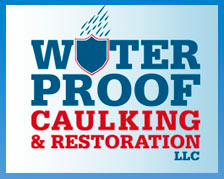Masonry continues to be the most popular type of building material in the United States, and for good reason. It is visually appealing, comes in a variety of styles and colors and lasts for a long time. Despite masonry’s ability to weather even tough outdoor elements, it will need regular maintenance to continue optimal functioning.
You should inspect your masonry for damage on a regular basis, but inspection does not mean combing every inch of your building week after week. Maintenance can be scheduled throughout the year; keep reading to learn how often you should perform each maintenance task.
Common Problems That Require Maintenance
Masonry, whether brick or stone, is known for its sturdiness. Even so, it will degrade over time as rain, sunlight and humidity break down the material’s bonds. The most common issues facing brick or stone buildings are water damage and degradation of the mortar that holds the building together.
However, good masonry maintenance should also include regular cleaning to prevent the buildup of algae and dirt. You will also need to take preventive steps in the outdoor area surrounding your structure to avoid weeds and grass overgrowth.
Locating and Repairing Water Damage
Water is one of the biggest hazards to brickwork. This can come in the form of rain, which can seep into a building if its flashings are not properly installed or maintained. Water damage can also happen from the ground level up, the result of rising damp or pooled moisture. Rising damp refers to incidents where groundwater rises higher than usual.
Although the water level will eventually subside, it leaves behind a tide line that contains salts dredged from the ground. These salts cling to the brick and will deteriorate masonry if not cleaned. Stick to an annual schedule to check for damage so that you can fix the issue while the damage is still minor.
Tuckpointing Or Repointing Brick
During your annual masonry inspection, look for more than just water damage. You should also observe the condition of the mortar between the building’s bricks. The function of mortar is just as critical as the function of the bricks themselves. Buildings rely on precise weight distribution. Mortar is a support system that distributes the building’s weight in an even manner across the bricks. Over time, as mortar dries out and chips away, it will perform this task less and less efficiently.
You can see evidence of mortar degradation by looking for cracks, holes, pits or areas where the mortar appears sunken or even absent. If you find any of the aforementioned damage, it is time for tuckpointing or repointing services.
There is no functional difference between tuckpointing and repointing. The difference is aesthetic. Both mortar techniques dig out and replace old mortar with new material that can once again distribute the weight. Repointing does this with standard mortar. Tuckpointing, by contrast, uses different mortar colors and a highlight line (called a “fillet”) to make the work stand out. Some people prefer this aesthetic feature and choose tuckpointing for its visual appeal.
While you should check for mortar damage at least once per year, try to time your inspections with the end of the wet season. If your climate has both a wet season and a freezing season, inspect after the end of each.
Cleaning Brick Surfaces
Twice per year, you should clean the surface of your masonry. A professional pressure washing company can help you to do this without damaging your brickwork. Over time, the accumulation of dirt and grime can contribute to the degradation of your building’s masonry. Contaminants like algae or moss can even trap water against your bricks and hasten its breakdown. Pressure washing is a fast method for eliminating these contaminants.
Prevent Invasive Elements
Once a month cut down overgrown grass or weeds next to your building. When vines, grass or unkempt greenery grow flush with a structure’s wall, not even the midday sun can fully evaporate the moisture that builds up near the ground. Weeds and unkempt greenery are also a safe haven for insects and other pests. Some plants may cling to the masonry directly, pulling it apart if left untrimmed.
Trust The Experts To Tackle Any Type Of Brick Repair You Need
If it is time for some masonry maintenance for your building, your best course of action is to trust the professionals. The experts at Waterproof Caulking & Restoration can help with any project you have in mind, from routine pressure washing to advanced caulking and mortar repair. Reach out today to schedule an appointment.
